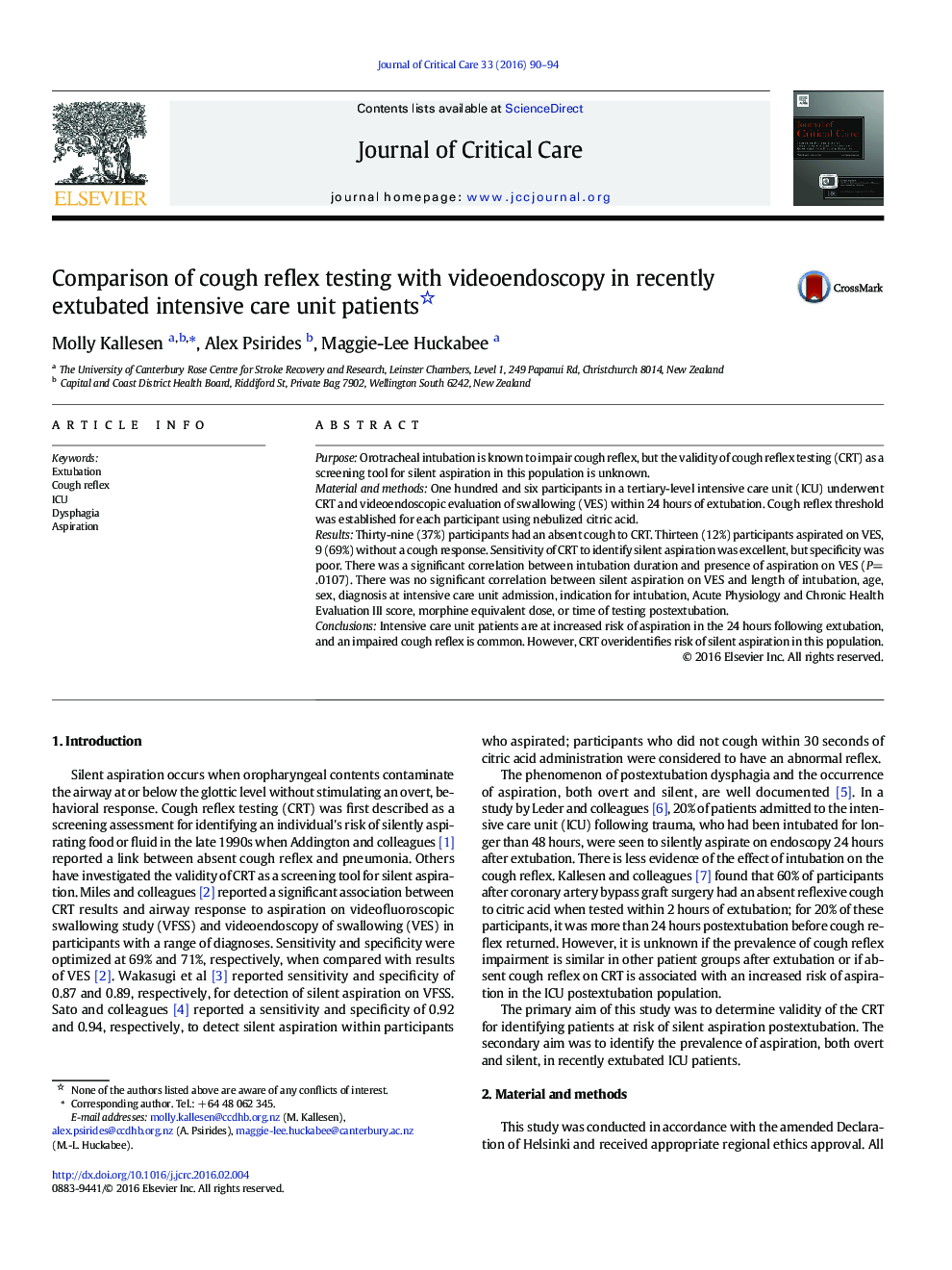| Article ID | Journal | Published Year | Pages | File Type |
|---|---|---|---|---|
| 2764326 | Journal of Critical Care | 2016 | 5 Pages |
PurposeOrotracheal intubation is known to impair cough reflex, but the validity of cough reflex testing (CRT) as a screening tool for silent aspiration in this population is unknown.Material and methodsOne hundred and six participants in a tertiary-level intensive care unit (ICU) underwent CRT and videoendoscopic evaluation of swallowing (VES) within 24 hours of extubation. Cough reflex threshold was established for each participant using nebulized citric acid.ResultsThirty-nine (37%) participants had an absent cough to CRT. Thirteen (12%) participants aspirated on VES, 9 (69%) without a cough response. Sensitivity of CRT to identify silent aspiration was excellent, but specificity was poor. There was a significant correlation between intubation duration and presence of aspiration on VES (P= .0107). There was no significant correlation between silent aspiration on VES and length of intubation, age, sex, diagnosis at intensive care unit admission, indication for intubation, Acute Physiology and Chronic Health Evaluation III score, morphine equivalent dose, or time of testing postextubation.ConclusionsIntensive care unit patients are at increased risk of aspiration in the 24 hours following extubation, and an impaired cough reflex is common. However, CRT overidentifies risk of silent aspiration in this population.
